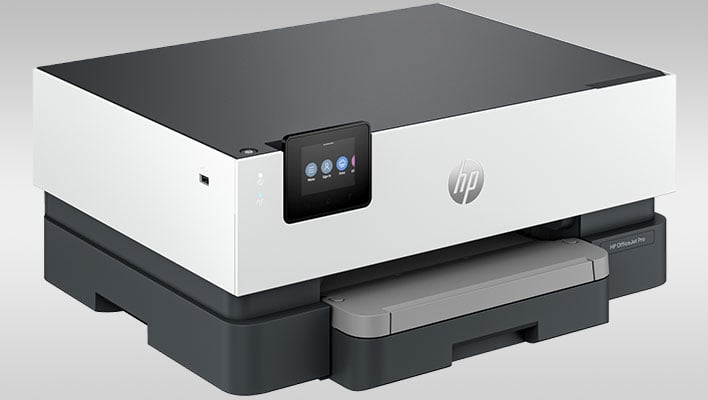HP CEO Defends Bricking Printers, Calls Customers Who Don't Buy HP Ink A Bad Investment

HP's strategy when it comes to selling and supporting printers has been a point of contention with customers, and specifically with regards to the company's hard line stance on buying first-party replacement ink cartridges. Customers who dare to save a few bucks by purchasing third-party ink could find that their printer is refusing to do its job. Why is that? Because those customers are a "bad investment" for HP.
That controversial tidbit is one of several curious sound bytes HP CEO Enrique Lores made during a recent interview with CNBC Television. The interview began by talking about PC market trends and how artificial intelligence is helping to shape the landscape. When the topic pivoted to a class-action lawsuit filed against HP over its draconian ink policy, Lores promptly opened his mouth and stuck his foot in it. More than once.
Lores defended the company's policy of essentially bricking printers that don't use first-party ink by saying HP is protecting its intellectual property (IP).
"For us, it is important to protect our IP. There is a lot of IP that we build in the inks of the print heads, in the print heads themselves in the printers. And what we are doing, when we identify cartridges that are violating our IP, we stop the printer from work[ing]," Lores said.
When pressed on HP's controversial strategy of breaking its own printers from working, Lores explained that third-party ink can cause a host of issues, since the ink was not designed by HP for its products. We're willing to give him a small benefit of the doubt here, as non-genuine ink can be of dubious quality, which can clog the print head and cause other headaches. But Lores went several steps further.
According to Lores, third-party ink cartridges pose a security threat. He says HP has seen instances where viruses have been embedded in third-party ink cartridges, which then spread malware to the printer and ultimately to the user's PC.
One of the hosts pressed Lores further and asked if, long term, the idea of third-party cartridges simply a bad one. And that's where Lores didn't do HP's brand any favors.
Lores says HP wants to make printing as easy as possibly, which is curious because it flies in the face blocking third-party ink cartridges. But the real motivation is that HP wants to make "printing a subscription." Lores said this is what HP has been driving towards, claiming it removes barriers to printing.
When asked about the lawsuit's allegation that HP's strategy artificially inflates printer ink costs, Lores candidly claimed that HP loses money on its printer hardware, and that selling ink and other accessories is part of the business model where HP makes its money.
"This is something we announced a few years ago, that our goal was to reduce the number of what we call 'unprofitable customers' because every time a customer buys a printer, it's an investment for us. We're investing in that customer, and if this customer doesn't print enough or doesn't use our supplies, it's a bad investment," Lores said.
While we get the idea of what Lores is saying, but calling customers a "bad investment" if they don't print often enough and/or don't consume HP's supplies is, at best, in bad form. There could be benefits to having a subscription model, sure. However, forcing customers into that path is not going to win HP any brownie points. It may boost its profits, though, depending on how customers vote with their wallets and purses.

